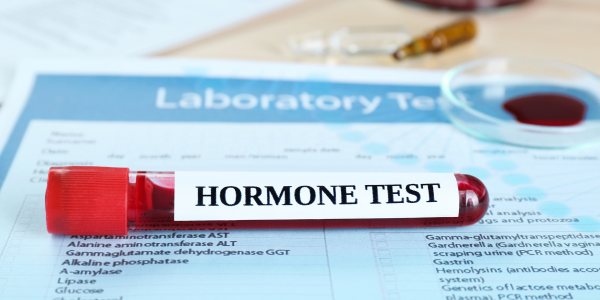

Acupuncture for Chronic Pain
Have you ever woken up in the morning and felt that ache or pain– the one that means you’ll be leaning on medication all day for some relief? Or maybe you didn’t sleep well because of your pain. Lately, it’s been happening more and more often – but you’re not alone: at least 20% of Americans struggle with chronic pain. The trouble is, you’re given so few options at doctor’s visits – and you might be afraid to ask for more medication in light of the opioid crisis. Not to mention a good day on painkillers might be followed the very next morning with more pain. It can be a vicious cycle!
But what if there was an alternative to medications and their side effects: a very old and traditional practice, but with current science to back up the claim that it reduces your need for painkillers? Enter acupuncture!
What Is Acupuncture?
Whenever acupuncture comes up in conversation, there’s usually one person who shudders at the thought of the needles. But the needle aspect is only one part of the art of acupuncture – a skilled acupuncture practitioner knows how to manipulate the needles to promote the release of endorphins, your natural feel good hormone, in a painless way.
Acupuncture is an import from China, and the first organized document relating to the practice dates from 100 BC! Some estimate that it has been around for 3000-5000 years. The earliest source of systematic documentation of acupuncture theory is the Huang Di Nei Jing (the Inner Classic of the Yellow Emperor), which dates back to the Han dynasty in the second century BC. Like many medical systems, acupuncture theory and practice have evolved over the years in China and in the West. It is has also been embraced by the US military and VA hospital system.
In acupuncture, emphasis is placed on the importance of energy (Qi) that flows through 14 meridians in your body. Traditional Chinese practitioners believe that when this life force or Qi is blocked, it can cause illness and symptoms such as pain – and by inserting small needles at precise points, the blockages can be released.
Acupuncture can have a real impact in the treatment of both acute and chronic pain, as evidenced by many medical studies. Medical acupuncture specifically, is practiced by doctors of western medicine who have also studied acupuncture – providing you with the best of both worlds.
Is Acupuncture Effective for Chronic Pain?
Acupuncture is a fantastic option if you’re struggling with chronic pain, as it provides very little risk for a potentially big reward of relief. Acupuncture can also help if you struggle with other symptoms such as nausea, anxiety, depression, or insomnia along with your chronic pain.
Benefits of acupuncture include:
- Reducing pain
- Promoting relaxation and sleep
- Reducing anxiety
- Aiding weight loss
- Minimizing nausea
- Improving gut function
- Reducing oxidative stress
The World Health Organization recognizes the use of acupuncture in treating many medical conditions including:
Respiratory Diseases
- Acute sinusitis
- Acute rhinitis
- Common cold
- Acute tonsillitis
- Acute bronchitis
- Bronchial asthma
Eye Disorders
- Acute conjunctivitis
- Eye Pain
- Central retinitis
Disorders of the Mouth Cavity
- Toothache
- Pain after tooth extraction
- Gingivitis
- Pharyngitis
Orthopedic Disorders
- Tennis elbow
- Sciatica
- Low back pain
- Rheumatoid arthritis
- Other arthritis
Gastrointestinal Disorders
- Spasm of the esophagus
- Hiccups
- Gastroparesis
- Acute and chronic gastritis
- Gastric hyperacidity
- Chronic duodenal ulcer
- Acute and chronic colitis
- Acute bacterial dysentery
- Constipation
- Diarrhea
- Paralytic ileus
Neurologic Disorders
- Headache
- Migraine
- Trigeminal neuralgia
- Facial paralysis
- Peripheral neuropathy
- Meniere’s syndrome
- Neurogenic bladder dysfunction
- Intercostal neuralgia
Yes, acupuncture can help reduce musculoskeletal and neurological pain. While using small needles to tap into your chronic pain might seem bizarre, there is some science behind the meridians and Qi.
How Does Acupuncture Reduce Pain?
Using needles on specific points may seem counterintuitive when dealing with severe pain, but it’s a relatively noninvasive treatment that helps regulate your tissues, organs and glands. Acupuncture provides just enough stimulus to nudge your body into making a change, which includes encouraging circulation, immune function, stress reduction and pain modulation.
Acupuncture carries out this “nudge” by stimulating your nervous system and brain through the specific points. Your nervous system releases special chemicals in your muscles, spinal cord, and brain. As a result, the chemicals trigger the release of hormones and chemicals that instigate healing and better regulation of your body. These chemicals include beta-endorphins which help shut off the sensation of pain – and studies show that regular acupuncture sessions help patients reduce their long-term dependence on pain medication.
While acupuncture isn’t an all-out cure for pain in all people, it can make a huge difference to the way pain is managed, including less intake of painkillers and an improved quality of life. A session of acupuncture can be a very positive experience, putting you back in connection with your body, and relaxing you. Some patients even fall asleep!
Does Acupuncture Reduce Inflammation?
Amazingly, there’s another way acupuncture needles can help reduce pain: by reducing inflammation. Inflammation is something a functional medicine practitioner such as myself tests for regularly, because it’s a powerful underlying trigger for many autoimmune and chronic pain conditions, among other illnesses.
Inflammation occurs when your body has an injury or registers an invader, such as bacteria, viruses, toxins, or other irritants. The function of inflammation is to increase blood flow in the area, transporting immune system cells to the afflicted part of the body to work their magic, and get rid of whatever foreign invader your body detected. The process also involves creating a pain stimulus to alert you that something is wrong. So, inflammation is a clever mechanism that aids healing – when it works correctly.
In a mouse study, acupuncture focused on the vagus nerve helped reduce signs of inflammation. Your vagus nerve is an incredibly long nerve that connects your brain with your gut, heart and lungs – and has a host of different functions. One interesting purpose is that it can signal for an anti-inflammatory effect – which means that acupuncture may help reduce inflammation, and thus reduce the pain.
Where Can I Find an Acupuncture Practitioner?
If you’re struggling with pain and looking for acupuncture in the Scottsdale, Phoenix area, call Arizona Wellness Medicine to book an appointment on 602 892-4727 or fill out our contact form.
Share:
Social Media
Most Popular Posts
Subscribe To Our Newsletter
Related Posts

Understanding the Essential Labs for Women on Hormone Replacement Therapy (HRT)
So what are the minimum labs we’re looking at when we do hormone replacement therapy? We obviously want to look at an estrogen level, so

How to figure out the right amount of HRT in women
What about checking lab values when you’re on hormone replacement therapy? I do find it to be helpful, but we also want to consider symptoms.

Did you know there’s a difference between food allergies, sensitivities, and intolerances?
Did you know that there’s a difference between food allergies, food sensitivities and food intolerances? Food allergies, the reactions tend to happen pretty immediately and

Food Intolerances: Symptoms, Causes, and How They Differ From Food Allergies and Sensitivities
Eating a wide variety of whole foods is a key way to ensure a nutrient-rich diet full of vitamins and minerals. But what happens when
